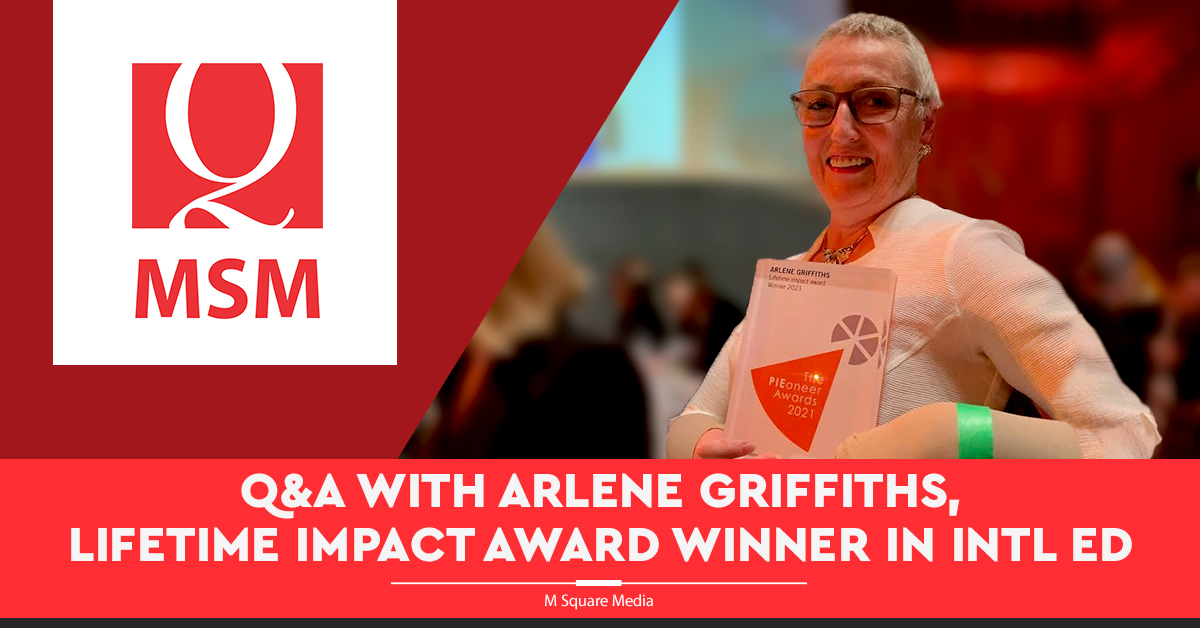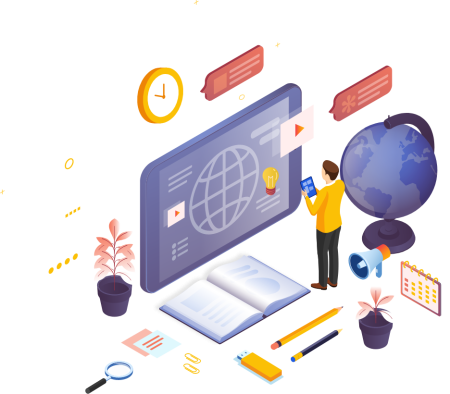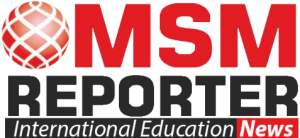Arlene Griffiths, an international education expert in the United Kingdom who has previously held leadership roles at Cardiff University, IDP Education, and the British Council, received a surprise Lifetime Impact Award at the 2021 PIEoneer Awards in September. On the day of the award ceremony in London, Arlene was caring for her 92-year-old father and dealing with her own health battle.
MSM Reporter sat down with Arlene, a member of the MSM International Advisory Board, for her thoughts on the award, her career, and where the industry is heading from her vantage point.
Congratulations for winning the award! Was it something you expected? Did you have a gut feel that night?
AG: No idea. I almost turned back! I don’t know how much you know about my circumstances but a year ago, I developed cancer [for the second time]. In October, this time last year, I underwent surgery followed by chemotherapy and then radiotherapy. And I’m also looking after my 92-year-old father. I needed to retire and people were quite shocked. So I said, I would try to go to the event?
How did you receive the award? What can you recall of the experience being up there on stage?
AG: I was chatting with my seatmate when Amy [Baker, one of the founder’s of The PIE], was talking about something exciting, about someone. She said this woman started her career in the pharmaceutical industry, and I believe there’s no one else but me. My head hit the table and I felt my seatmate’s arm around me, saying “Enjoy it, Arlene!”
I remember Amy saying that they’ve got something to show. They had put together a video. My recollection of that night is that I’m shocked. Totally shocked at that time. I am so grateful that I was sent a video of the event, so that I could take it all in. People were so kind.
How did the pandemic affect your health situation last year?
AG: Where it did affect me was in two areas: one was the diagnosis. I know that I need to have a mammogram every three years. I cannot delay that. And with COVID and looking after my Dad, I thought, “Oh, for crying out loud, this could be a problem because I had not received my 3 yearly invite.” So the fact that I didn’t have my regular mammogram because of COVID hit me and as a result, I was diagnosed with cancer and it had progressed into my lymphatic system. The other place it hit me was the impact of the chemotherapy. I actually developed a rare adverse reaction to the treatment — so rare that I’m the only person in the UK to ever have this. And in addition, I developed septicemia. So I ended up hospitalized during Christmas and New Year, during the second worst peak of COVID in the UK. I was the last type of patient, busy ward medics needed!
What does the Lifetime Impact Award mean to you?
AG: It’s not for me to say if I’ve made a great impact. That’s for other people to judge. One thing that stuck in my mind, which means so much to me, is that many people had mentioned that I mentored them. If I helped people to gain confidence, that means the world to me. The absolute world. Whether they are women or men, it doesn’t matter to me.
I started working in 1981 and the first industry I was in was the pharmaceutical industry. I spent a little less than 20 years there. And as I went through it, I looked back as being one of only a few senior women at the time. There were no female role models. And throughout the whole of my career I only had one, Dame Sandra Burslem, and she was truly amazing.
To me, gender balance is important. And diverse teams. This was reflected in the video at the awards. For example there was one contributor from the Philippines who came to do their PhD at the local University and joined the team, first as a student and then as a permanent member, when I was Director of IDP UK and USA. Another international student who also contributed to the video is now a lawyer in Singapore.
So it’s that array of people that brings excitement to our work and makes it so enjoyable . And it’s not gender-specific, and it’s not culture-specific. And if I have helped in any way, if I have helped them progress in their careers, if they are happier people, then I have made a difference.
Were you conscious of the fact that there weren’t too many women in senior roles back then, that there were only a few of you who occupied those positions on top?
AG: In the commercial world, where I worked for 15 years, I was one of the few. I worked predominantly with men. There was one exception. This was when I inherited a sales force that was predominantly women. We restructured, and the result was we had gender balance. But the strange thing was when I came into higher education, there were a lot more women. A massive change: I was used to working predominantly with men.
What big changes have you seen in the international education industry through the years and decades? For instance, there are more third party providers and agent aggregators now. What other big forces are you seeing recently?
AG: I’ve seen massive change. Twenty years ago, in January 2001, we were experiencing massive growth in international students, especially as a Russell Group university. There was a small office in the UK, and we dealt with agents and the British Council. So it was about managing that aspect. It was very reactive. What we now have is a sector that is professional. I also noticed five, eight years ago, the commercial aspect. There’s a sentiment that people are in a business, so some of the challenges they faced was getting that balance between getting revenue whilst giving a great student experience.
There are tensions in universities. In that aspect, that’s the internal world. But in the external world, the landscape is changing more quickly. And it’s your point that there are more external providers now. Our understanding is better than it was 20 years ago. There’s internationalization, there is a better understanding of internal or external drivers and linkages, and we’re a lot more strategic.
But at the end of the day, we are driven by an accidental backdrop. That external environment, COVID-19, has changed a lot of things. Specialization has brought more interest, more commercial platforms. So universities have to contend with the commercial aspect. It’s a really complicated environment now with a multifaceted supply chain to manage. To effectively manage all different things, you need a commercial skill set. And that’s a massive change.
Do you see a lot more acquisitions and partnerships in the pipeline, at least in the UK?
AG: I’ll try not to mention any names but if you look at some of the established players, some of them are very small and family owned, if their children don’t take over the businesses, what’s going to happen to their business? So there could be some interesting things here.
When I was at IDP, understandably the country’s reach was based more on Australian universities. Whereas in the UK and some source countries and America, the profile is somewhat different. There were similarities but there were significant differences. So in some of those markets,you have seen that the best way to gain entry was by an in-country existing agency. The reality is there are some agents sitting there who could be attracted to buy or tempted to sell because of COVID.
Do you see the agency business or model being disrupted in light of all these different changes?
AG: That’s a really interesting question. What I would be doing if I worked for a university is looking at moving more students to direct virtual recruitment?
One of the things that COVID has done, in my view, is that it has shown us a way into environmental sustainability. It’s brought that forward so inevitably that it means we’re going to have to change the way we do this, and there will have to be a change in the finance, whether it’s budget, revenue, and all the rest of that, as one of the big expenses is travel.
One of the things I’ll be looking at is one of the lessons I’ve learned in direct virtual recruitment. When I was back in Cardiff 20 years ago, for our medical courses, we were using virtual technology for our recruitment. We would link up with our agents, with Malaysia as one of the countries. But technology was a lot more basic then. We managed to do it.
What else should industry players prepare for in the post-COVID environment?
AG: One more worry about COVID is that in most countries, the international hierarchy of some entities has become so complex that suppliers have to become more flexible. You look at the products that you offer, you have the flexibility in offering that all the time, in keeping ahead. But not all providers are doing that. They can use COVID as an excuse. But what they’re not doing is that they’re not being flexible enough in meeting the needs of the client.
I did try to highlight this to some new players that medium term they would have client dissatisfaction. And some of them are starting to see the challenges because there are some compliance requirements in certain countries, which in turn means that they have to get their processes right.
So some of the aggregate platforms, they’re going to have to face that. It’s been established and proven that one of the most dangerous phases in any company is when they go through fast growth. So I think for some of the new players, it would be beneficial for them to think about that for a while.
Read more about Arlene and her work in this interview with The PIE.



